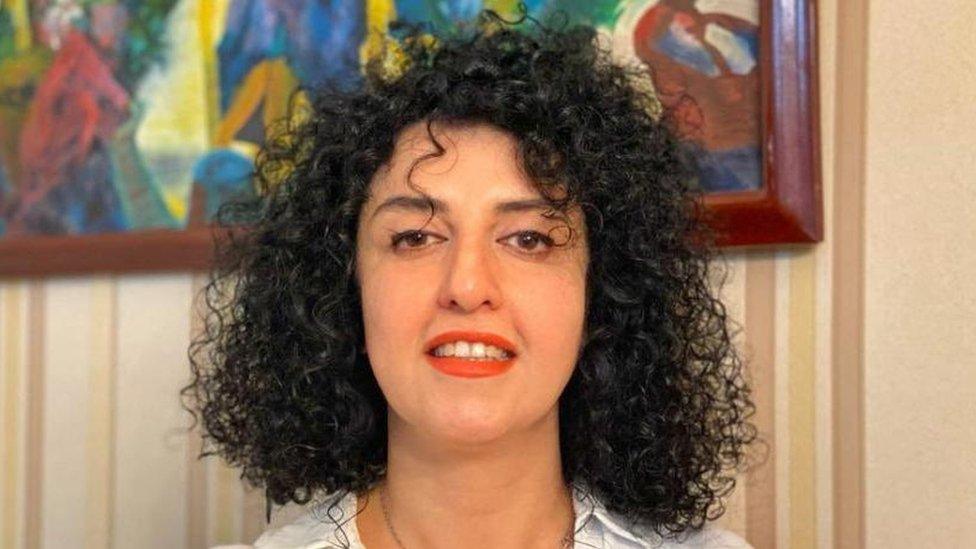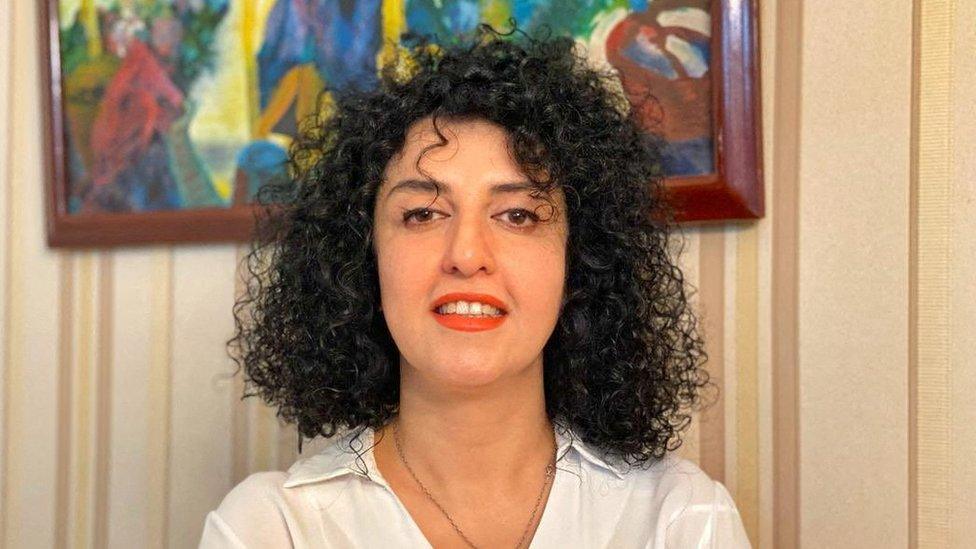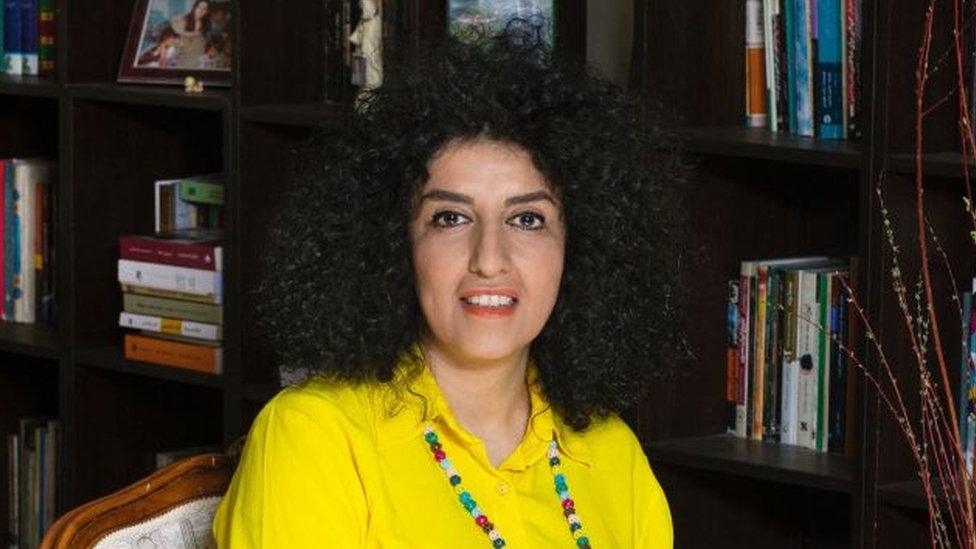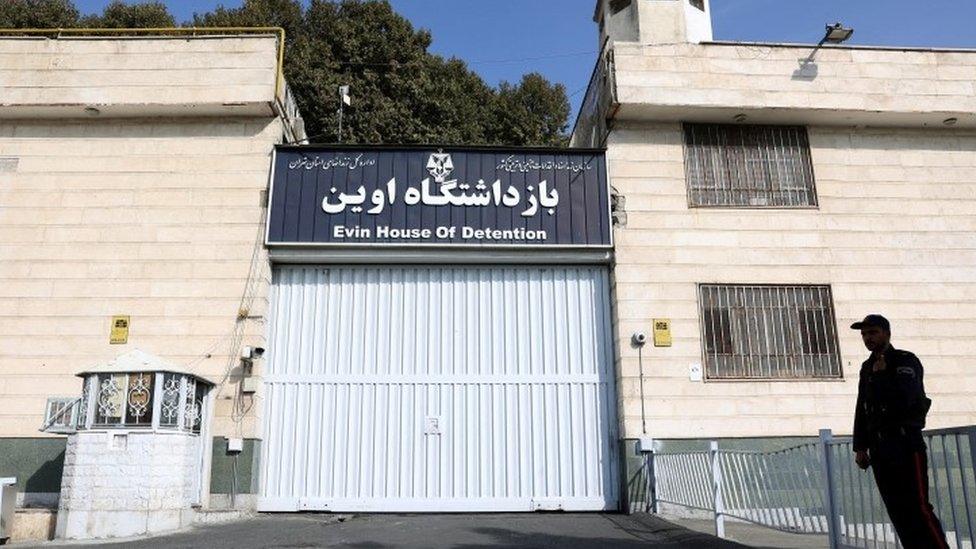Narges Mohammadi: Jailed Iranian Nobel laureate begins hunger strike
- Published

Narges Mohammadi, 51, suffers from heart and lung conditions
Jailed Iranian human right activist Narges Mohammadi has begun a hunger strike, a month after she was awarded the Nobel Peace Prize, her family says.
The 51-year-old is protesting against Iran's denial of medical care to her and other inmates and its mandatory hijab law, according to a statement.
She needs treatment for heart and lung conditions but a prosecutor is blocking her transfer to hospital, it says.
Last week, her family said that was because she refused to cover her hair.
The chairwoman of the Norwegian Nobel Committee - which awarded Ms Mohammadi the peace prize for "her fight against the oppression of women in Iran" - said it was deeply concerned.
"The requirement that female inmates must wear a hijab in order to be hospitalised is inhumane and morally unacceptable," Berit Reiss-Andersen said, according to AFP news agency.
There was no immediate comment from Iran's judiciary or prison authorities.
The statement from Ms Mohammadi's family said they were informed in a message from Tehran's notorious Evin prison that she had started a hunger strike on Monday morning, external.
It explained that she was protesting against two things: "the Islamic Republic's policy of delaying and neglecting medical care for sick inmates, resulting in the loss of the health and lives of individuals", and "the policy of 'death' or 'mandatory hijab' for Iranian women".
A prosecutor had opposed Ms Mohammadi's transfer to hospital for treatment for a week, despite repeated appeals to prison officials and the judiciary, it said.
"According to the diagnosis and echocardiogram of a trusted doctor of the prison, she has been in need of emergency transfer to the heart and lung centre for urgent medical care."
Last Wednesday, Ms Mohammadi's family said other female inmates at Evin had protested for two days and nights to put pressure on authorities to transfer her to hospital.
However, they added, "the prison warden announced that, according to the orders of the higher authorities, sending her to the heart hospital without a headscarf was prohibited".
Ms Mohammadi, the vice-president of the Defenders of Human Rights Center in Iran, is currently serving a 10-year prison term.
She has been arrested 13 times in total, convicted five times and sentenced to a total of 31 years in prison. She has also been sentenced to 154 lashes, although it is unclear whether that punishment has been carried out.
Under Iranian law, which is based on the country's interpretation of Sharia, women must cover their hair with a headscarf and wear long, loose-fitting clothing to disguise their figures.
In September 2022, mass protests erupted across Iran in response to the death in custody of Mahsa Amini, a young woman who was detained by morality police for allegedly wearing an "improper" hijab.
Women and girls have burnt their headscarves or waved them in the air at demonstrations against the clerical establishment. Many have even stopped covering their hair in public altogether.
In a letter to the Norwegian Nobel Committee published last Tuesday, external, Ms Mohammadi described the compulsory hijab as "a means of control and repression imposed on the society and on which the continuation and survival of [Iran's] authoritarian religious regime depends".
Related topics
- Published2 November 2023

- Published6 October 2023

- Published24 December 2022
